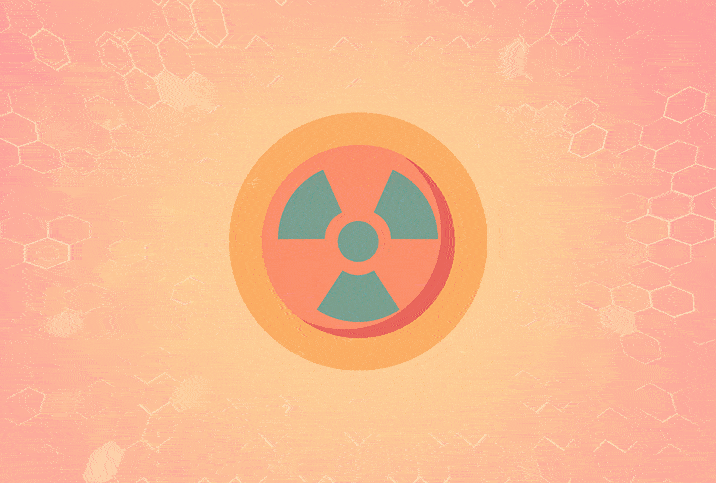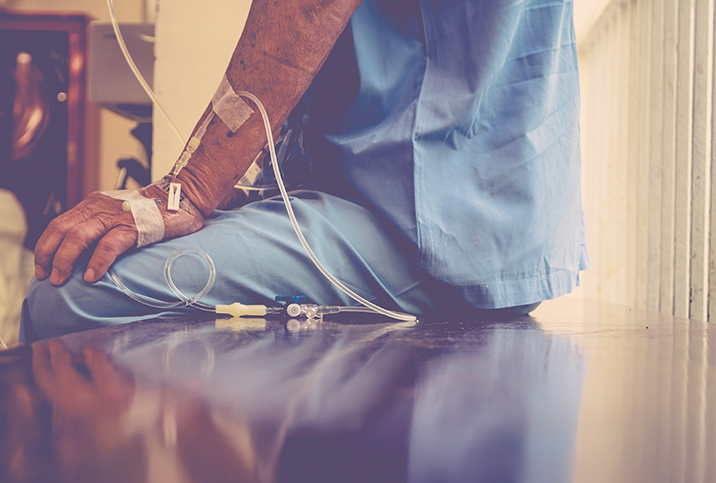How Are Ejaculation and Prostate Cancer Connected?

The prostate is one of the organs in the male reproductive system that plays an important role in the process of ejaculation. This means worrying about the cancer risks associated with the walnut-sized gland is mostly a burden borne by men.
If so inclined, you can actually feel your prostate. Insert your finger up the anus and into the rectum and direct it toward the front of your body. You can also stimulate or massage this part of your body until you experience prostate orgasms.
The prostate's main function is to produce what is known as prostatic fluid, which makes up about 20 percent to 30 percent of semen or ejaculate. Think of it as the organ that helps create the ideal conditions for sperm to travel through your system and into the world.
During ejaculation, the prostate is designed to release prostatic fluid into the urethra by contracting and blocking off the bladder, which is the reason you can't urinate and ejaculate at the same time. This is also why issues with urination or bladder control may hint at prostate problems, which usually come in three forms: prostate cancer, prostatitis and benign prostatic hyperplasia (BPH), or an enlarged prostate.
The basics of prostate cancer
Unlike BPH and prostatitis, prostate cancer typically has no symptoms, especially during the early stages. In general, modern medicine has made treatment highly effective, and the odds of death from prostate cancer is about 1 in 41.
Prostate cancer is the second most common form of cancer in men worldwide. In the United States, it is estimated that at least 1 in 8 men will be diagnosed with it.
The prevalence of this particular form of cancer makes it important to understand the facts surrounding it. For a long time, the medical community believed sexual activity had a direct bearing on the odds of developing prostate cancer. The thinking went that men who ejaculated more often were more likely to develop it.
That myth was eventually dispelled by a 2016 study published in European Urology. Its sample size of nearly 32,000 men gave its findings some weight. Study authors suggested that men who ejaculated more than 21 times a month had a 20 percent lower risk of developing prostate cancer.
"Although the results are significant, the study only showed a difference in prostate cancer diagnoses to be about two cases per 1,000 person-years between the frequent and less frequent ejaculation groups. So can we tell if you will be one of the people to benefit from frequent ejaculation? The answer is no," according to Justin Dubin, M.D., a urologist and men's health specialist with Memorial Healthcare System in South Florida and co-host of the "Man Up" podcast.
He explained that there are many factors in each man's cancer risk. Genetics, environmental exposures and lifestyle choices are just a few.
"Everyone's life is uniquely their own, and because of that, these factors can impact everyone differently," Dubin added. "So while the data suggests that, in general, increasing your ejaculation frequency will reduce your personal risk of prostate cancer, it is hard to actually show or know that it has an impact on an individual level."
What can be done to keep the prostate healthy?
The risk of developing prostate cancer increases as men age. It is recommended that people in their 40s (and older) start to take proper measures to protect themselves. The best precaution men can take, aside from regularly attending medical screenings, is to modify their lifestyle for better health.
"Essentially, a heart-healthy diet is a prostate-healthy diet," said Seth D. Cohen, M.D., M.P.H., a urologist and an assistant professor at the NYU Grossman School of Medicine in New York City. "A well-balanced exercise routine and weight-loss management will be beneficial for prostate health."
Men who are overweight or obese have a higher risk of developing aggressive forms of prostate cancer, so a healthy diet and exercise not only improve a man's overall health but also decrease his chances of prostate cancer.
Can men undergoing cancer treatments still have sex?
Some men with prostate cancer prefer not to have sex due to anxiety and the fear of aggravating or making their condition worse. Others are curious to find out if it's possible to still experience an orgasm from sexual intercourse.
"The good news is that sex during cancer treatments is safe," Dubin said. "If you plan on having a prostatectomy, make sure to talk with your urologist to find out when you can start engaging in sexual activity after surgery. Otherwise, I think you can continue to engage in sexual activity the same way as you did prior to treatment."
Don't unbuckle your belts just yet
The argument that a higher frequency of ejaculation leads to a lower risk of prostate cancer has merit, according to science. Keep in mind, though, that the jury is still out.
"What I think you should take away from this study is that increasing your monthly ejaculation to at least 21 times a month can potentially decrease your risk of prostate cancer," Dubin said. "But I do not think that setting goals for ejaculating more frequently to achieve that goal is a good idea."
Sex should make you happy and it shouldn't be a forced experience.
"Setting ejaculation frequency goals can potentially remove the enjoyment out of your sexual experiences and only create additional stresses for yourself and your partner for very little, if any, gains," Dubin concluded.




















